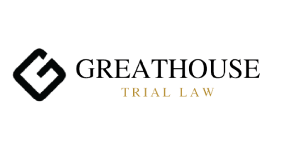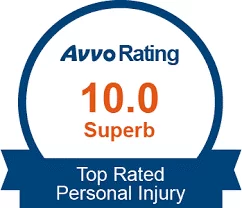An accident is called an accident for a reason, it is unexpected and unintentional. In an insurance claim, however, there is a party that is at fault and a victim of every accident. But how do insurance companies determine who is at fault?
Investigating the Accident
The first step to determining fault in an accident is conducting an investigation. The most important information insurance companies use to investigate the accident is the police report collected at the scene. This is because the individual claims from each party involved in the accident will oftentimes offer conflicting information and have personal biases.
Due to the conflicting stories witnesses tell, insurance companies rely on the police report to conduct their investigation and determine fault. They do use the information presented from the parties involved as well, but the police report is the most important evidence because it is unbiased and more credible than a firsthand account.
There are additional things you can do to support the investigation of the claim, such as providing other forms of evidence. Taking photos of the accident, gathering information from the other parties involved, and any other information you can provide the insurers will help establish who is at fault.
After an accident, you should never admit fault to any of the parties involved, the police, or the insurance company. Even if you feel the accident was your fault, there could be other factors that you were not aware of that were the real cause of the accident. Give only the facts and relevant information and let the insurance companies draw their own objective conclusions of what occurred and who is at fault.
Assessing Fault
Georgia is a “fault” state when it comes to auto insurance claims. This means that the at-fault driver is responsible for any repairs, expenses, or losses through their insurer’s liability coverage.
Insurance companies, however, usually determine fault through the state’s legal definition of negligence. There are three types of negligence that are used to help assess fault in an at-fault state.
1. Strict Comparative Negligence
With comparative negligence, both parties can be found partially at fault for an accident. With strict comparative negligence, your at-fault percentage dictates how much compensation you will receive from the insurance company. For example, if you are found to be 75% at fault for the accident, you could receive compensation for up to 25% of your losses.
2. Modified Comparative Negligence
Some states, including Georgia, use a modified form of comparative negligence, which limits your ability to recoup losses. In Georgia, this means an injured person can recover monetary damages as long as he or she was no more than 49% at fault for the accident.
3. Pure Contributory Negligence
This type of negligence requires a driver to be 100% faultless to recover any damages. For states with pure contributory negligence, determining fault is all or nothing. Even if you are determined to be 5% at fault for the accident, you cannot recoup damages.
Determining fault can be a complicated thing, and every accident has its own unique circumstances that will determine the fault of your case. If you’ve been injured in an accident and need help navigating the process and getting the compensation you deserve, call Greathouse Trial Law today. We are experts in the process who will do what it takes to get the outcome you deserve.
Why Contact Greathouse Trial Law?
An attorney can help you manage each aspect of your hit-and-run claim when your legal counsel steps in as soon as possible. Your attorney can help you navigate the insurance claim process, manage the submission of paperwork to the insurance company or court, and even prepare your case for trial if it gets to that point.
Founded by Attorney and Atlanta native Riah Greathouse, Greathouse Trial Law has helped numerous victims in these situations in all aspects of a claim, from investigating the accident scene to uncovering the identity of the hit-and-run driver to arguing for the victim’s rights in court. Schedule a free consultation today with our office at 678-310-2827 to learn more about how to protect your interests and right to compensation.
Blog Disclaimer:
Disclaimer: The information in this blog post (“post”) is provided for general informational purposes only, and may not reflect the current law in your jurisdiction. No information contained in this post should be construed as legal advice from the individual author or the law firm, nor is it intended to be a substitute for legal counsel on any subject matter. No reader of this post should act or refrain from acting on the basis of any information included in, or accessible through, this post without seeking the appropriate legal or other professional advice on the particular facts and circumstances at issue from a lawyer licensed in the recipient’s state, country or other appropriate licensing jurisdiction.
Greathouse Trial Law
260 Peachtree Street NW
Suite 803
Atlanta, GA 30303
(678) 310-2827
Copyright© 2021. Greathouse Trial Law. All Rights Reserved


